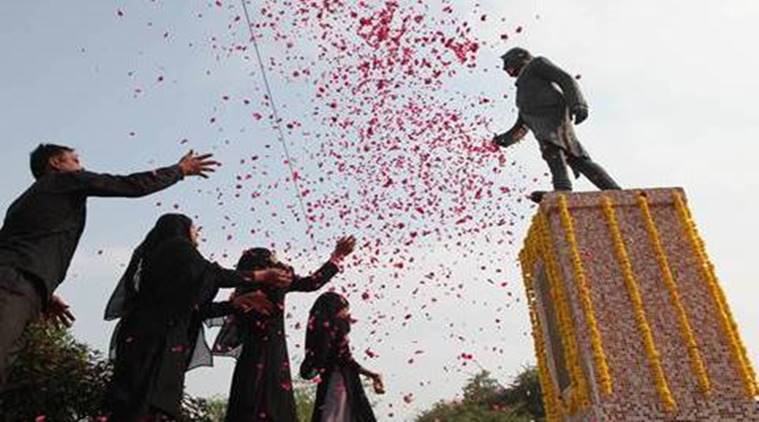Children’s Day: Jawaharlal Nehru’s contributions towards education
Nehru strongly believed in scientific knowledge and propagated reasoning and rationality as the basis of all learning.
 Nehru strongly believed in scientific knowledge and propagated reasoning and rationality as the basis of all learning. (Source: Express Archives)
Nehru strongly believed in scientific knowledge and propagated reasoning and rationality as the basis of all learning. (Source: Express Archives)
We all know that Jawaharlal Nehru, the first Prime Minister of India, was very fond of children and his birthday is observed as Children’s Day. But not many know that he played an important role in shaping country’s education sector. He strongly believed in scientific knowledge and propagated reasoning and rationality as the basis of all learning.
Nehru believed that the role of education in an individual’s life was not restricted to academia alone but extended to one’s economic ambitions and social contributions as well. “Unless you produce the amount you consume, you are a burden to society,” is among one of his famous quotes.
Watch What Else Is Making News?
It was under Nehru’s vision for the country’s youth that pivotal higher education institutions such as the Indian Institutes of Technology (IITs), Indian Institutes of Management (IIMs), All Indian Institute of Medical Sciences (AIIMS) and others were set up.
Nehru had pushed for a Special Act through which the first IIT was set up in Kharagpur, West Bengal, in May, 1950. Addressing the first convocation ceremony of the institution, Nehru had said, “Here in the place of that Hijli Detention Camp stands the fine monument of India, representing India’s urges, India’s future in the making. This picture seems to me symbolical of the changes that are coming to India.”
He was integral in setting up the first IIT in west India at Powai, Mumbai. Pandit Nehru was able to procure help from the Soviet Union for setting up of IIT Bombay in 1958. This resulted in the establishment of another institute in the north, IIT Kanpur, with help from the US, in 1959, possibly as an outcome of the Cold War.
The late prime minister played a key role in ushering in the IIMs and AIIMS by rooting for the establishment of the same. The first AIIMS was going to be set up in Calcutta but after the proposal was rejected by then West Bengal CM Bidhan Chandra Roy, it was shifted to New Delhi.
Read: Delhi: Kids who couldn’t read catch up — one letter at a time
Nehru also laid the foundation stone of the Motilal Nehru National Institute of Technology (MNNIT), Allahabad, in 1961, which was inaugurated by the next Prime Minister, Lal Bahadur Shashtri, in 1965.
In his five-year plans, Nehru also outlined a commitment to guarantee free and compulsory primary education to children. However, Noble laureate Amartya Sen once criticised Nehru’s policies towards primary education. “Nehru had the understanding of primary education and was committed to it, but in terms of channelising resources, priorities or planning, there was a big failure,” said Sen.
Nehru helped establish the Lalit Kala Academy and the Sahitya Akademi, and was the first chairperson of the latter. According to him, education was not only about academics and scholarly studies but also about art, culture and all round development as well.
Nehru’s legacy lives on in the country’s colleges and universities dedicated to equip youth with knowledge and skills designed to make them a force to reckon with.
For more education news, click here



- 01
- 02
- 03
- 04
- 05



























